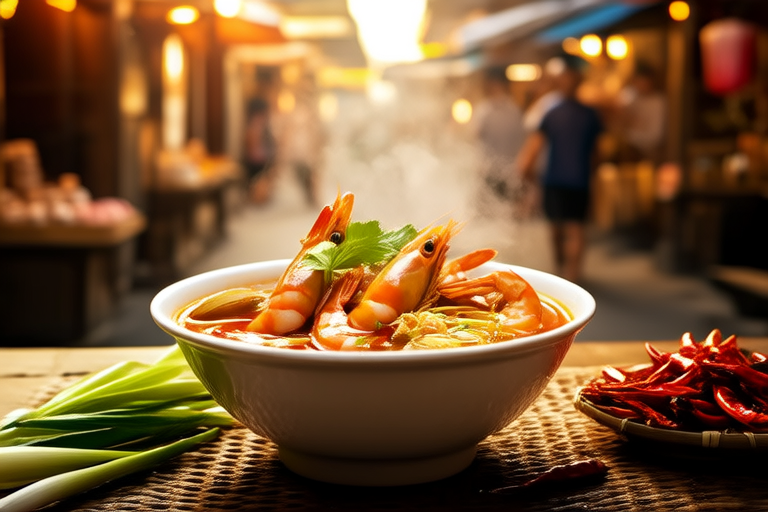Savor the World: How Travel Enhances Your Love for Gourmet Food

Savor the World: How Travel Enhances Your Love for Gourmet Food
Introduction
Travel is more than just a journey to new destinations; it’s an adventure through diverse cultures, languages, and, most importantly, culinary traditions. Every bite taken during a trip has the potential to transform your appreciation for gourmet food. As you explore different corners of the globe, you open yourself up to new horizons not just geographically but also gastronomically. Each destination offers unique flavors, ingredients, and cooking techniques that can deepen your love for gourmet food. This article delves into how travel enriches your palate and broadens your culinary horizons.
Exploring Local Cuisine
One of the most rewarding aspects of travel is discovering the local cuisine. Immersing oneself in the local food scene allows travelers to uncover hidden gems and traditional dishes that might otherwise go unnoticed. From tapas in Spain to sushi in Japan and tacos in Mexico, each country has its iconic dishes that tell a story about its history and culture. These experiences not only satisfy your taste buds but also broaden your palate and introduce you to new flavor profiles.
For instance, tapas in Spain are small plates of food meant for sharing, reflecting the social nature of Spanish dining. In contrast, sushi in Japan is a delicate art form, showcasing the precision and skill of the chef. Tacos in Mexico offer a range of fillings and spices that reflect the vibrant and colorful culture of the country. By trying these dishes, travelers gain a deeper understanding of the local culture and develop a more refined appreciation for gourmet food.
Meeting Chefs and Artisans
Encounters with local chefs, bakers, farmers, and artisans provide invaluable insights into the craftsmanship behind each dish. These professionals often share their knowledge and passion for food, inspiring travelers to appreciate the artistry involved in preparing gourmet meals. Anecdotes about these interactions reveal the dedication and creativity required to create memorable culinary experiences.
Imagine sitting down with a master baker in France, learning the secrets behind crafting the perfect baguette. Or spending time with a farmer in Italy, understanding the importance of seasonal ingredients. These encounters not only enhance your appreciation for the food itself but also provide a deeper understanding of the cultural significance of each dish. The craftsmanship behind each meal is a testament to the dedication and passion of those who prepare it.
Cultural Immersion Through Food
Food plays a central role in cultural celebrations and everyday life, making it a powerful tool for cultural immersion. Participating in festivals or markets where food is celebrated provides a unique opportunity to experience the local culture firsthand. Festivals like Oktoberfest in Germany or La Tomatina in Spain showcase the importance of food in cultural celebrations.
At Oktoberfest, visitors can enjoy traditional Bavarian cuisine, including pretzels, sausages, and beer, while experiencing the lively atmosphere of the festival. Similarly, La Tomatina in Spain involves throwing tomatoes in the streets, celebrating the harvest season and the joy of community. These events not only provide a delicious culinary experience but also deepen your understanding and appreciation for local cultures.
Global Influences on Personal Cooking
Travel has a lasting impact on personal cooking habits, encouraging experimentation with new recipes and techniques. Stories of how travel influences personal cooking habits back home highlight the global influences on everyday meals. Incorporating international flavors into your daily routine can be both fun and rewarding.
For example, after visiting Thailand, you might start experimenting with curries and stir-fries at home. Or, after a trip to Italy, you could try making your own pasta or pizza. Tips on incorporating international flavors into everyday meals include seeking out authentic ingredients, experimenting with new spices, and learning basic cooking techniques from different cuisines. Encouraging readers to experiment with new recipes inspired by their travels can lead to a more adventurous and fulfilling culinary experience.
Conclusion
In conclusion, travel enriches our love for gourmet food by exposing us to diverse culinary traditions. From exploring local cuisines to meeting chefs and artisans, and participating in cultural festivals, each experience broadens our palates and deepens our appreciation for gourmet food. Travel provides a unique opportunity to savor the world, one bite at a time. We encourage readers to embark on their own culinary adventures and discover the rich tapestry of flavors that awaits them around the globe.